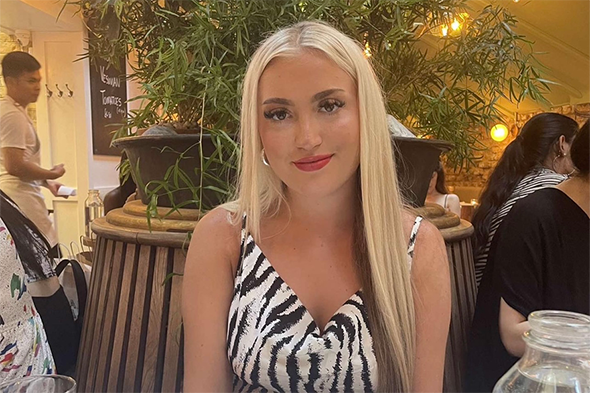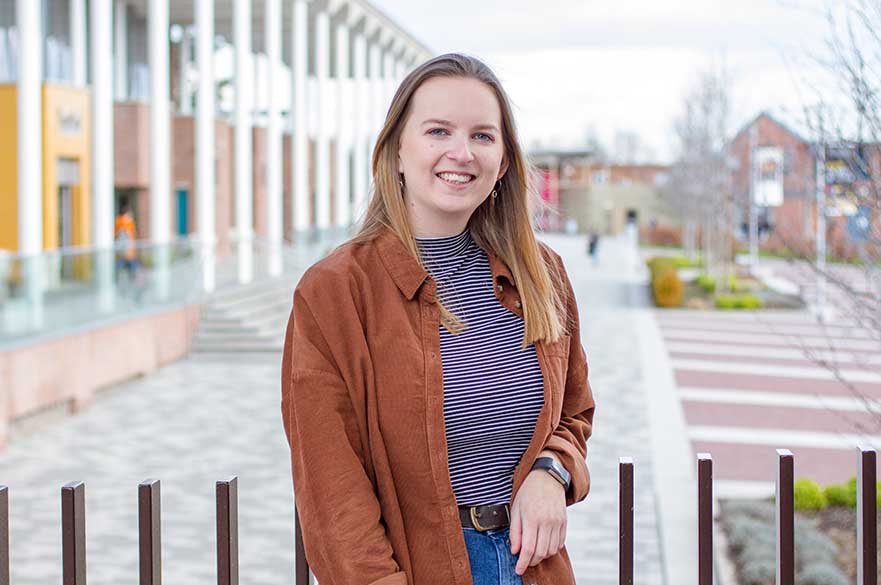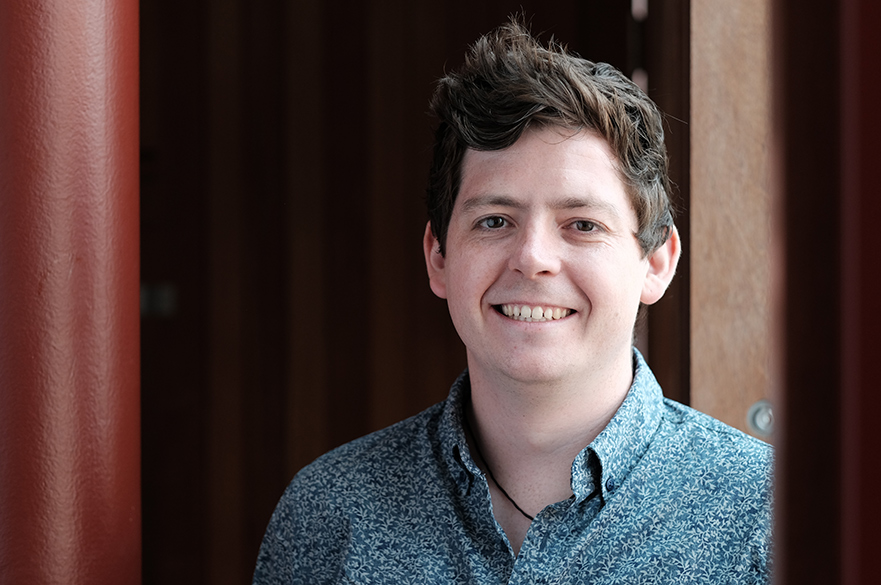More about Joseph
Current job title: LSE Fellow, London School of Economics
Tell us why you chose to study at NTU.
“My decision to enrol at university came after working for the NHS for two years. It was the welcoming feel of the history department at NTU that made me think, ‘I want to study here’. An incredibly inspirational and personal talk about what the course, department, and university could offer me convinced me that NTU was where I wanted to spend three years. The Clifton Campus was also appealing to experience campus life with easy access to the city centre.”
What did you enjoy most about your course?
“I most enjoyed the freedom to find my own way through the modules and topics on offer and study what I was most interested in. Guidance and advice was generously offered by faculty, and I was able to experience a range of different types of history and teaching styles. In particular, I enjoyed the practical elements of several modules at the intersection between public and academic history. Helping to curate museum exhibitions and designing heritage tours were highlights of my yearlong placement alongside my studies.”
What did you think about the course staff ? How did they support your learning and university experience?
“Wow, what can I say about the course staff in the history department at NTU? They were fantastic. I got all the pastoral and academic support I required and felt supported by them throughout my three years of study. Doors were always open for students seeking advice with the course material, university life, or general catch-ups.
“From day one, every member of staff made me feel welcome and a valued part of the department. They pushed me intellectually and helped me develop personally too. The enthusiasm of lecturers and class teachers was infectious and certainly played a key role in my decision to pursue a career in academia. I could tell that the department chose its staff carefully and really supported one another with seminars and events well attended by both staff and students.
“I had a great academic advisor in my third year, who helped me immensely with my dissertation and independent research.”
Would you recommend NTU and your course to someone looking to study in that area?
“I would absolutely recommend the course to anyone interested in studying history at university. The variety of modules on offer is impressive and caters for a wide range of styles and approaches to history, from medieval gender history and The Crusades, to moral panic in Mid-Victorian England and Global History since 1500. The academic and pastoral support offered by the department is some of the best I have seen anywhere in higher education. I loved my time at NTU and with the history department. It is a warm and inviting place to study and develop! Students come first and are seen as a highly valued asset.”
How has your career developed since leaving NTU?
“Since graduating from NTU in 2011 with a First Class degree I have embarked on a career in academia.
“I was supported by staff in the history department at NTU in my applications for postgraduate study and secured a place to study for an MSc in Global History at the London School of Economics. This was a great stepping-stone beyond the undergraduate experience and I got to use all the skills I developed at NTU. I was awarded an MSc with Distinction in 2012 and took this into the workplace while I worked on an application for a PhD program in history, which I started the following year at the London School of Economics.
“Working in Wealth Management in the year between my MSc and PhD gave me time to catch my breath academically and enjoy some time earning money (and spending it!). In Barclays Wealth, I found an incredibly receptive team who were keen to bring in graduates from a range of degree programs with different skills to offer. I gained valuable experience that has informed my academic research and given me insight into the world of work outside of academia. I knew that this was not for me, and I was itching to start my PhD studies. This involved an incredibly tough four years of independent research, although I thoroughly enjoyed every minute of it. I took on some teaching work whilst studying in one of the departments at LSE and this led to a Fellowship position once I had finished my PhD. I have been working as an LSE Fellow since September 2017.”
What have been the highlights of your career so far?
“Completing my PhD studies, submitting my thesis and passing my viva reminded me of just how far I have come since starting my undergraduate studies at NTU. I feel such a sense of achievement coming from a state school and college in Wakefield, with A-level results which were far from impressive, and successfully making it through an undergraduate, postgraduate and PhD program, to reach my dream of teaching and researching in a leading university.
“Being accepted as a fully-fledged academic, presenting my own research at international conferences and successfully defending my thesis have been the highlights of my career so far. It has shown me that career development requires hard work and great support from those around you who can help you reach your potential.”
What are your favourite aspects / greatest challenges of your current role?
“One of the greatest challenges of my current role is designing undergraduate modules that are current and relevant, whilst being interesting and engaging for 1,600 students across all departments and degree courses at the LSE. This requires an open mind and a little creativity in producing a classroom environment that brings together students from a range of degrees and academic backgrounds.
“My favourite part of my job is teaching students who are eager to learn about and discuss some of the big questions facing the world today. I love being in a classroom and watching student-led debate and discussion unfold around me.”
How have your studies contributed to your career / current successes?
“In a pragmatic sense, my studies in history have been central to my career progression to date. I have studied history at every degree level and wrote my PhD thesis based on my own historical research. Without these qualifications, I would not have been able to work in academia. In a broader sense, my history studies have fundamentally changed the way I approach problem solving and analytical challenges.
“Studying history and economic history, has taught me the importance of context and of asking questions of information in front of me. Rigorous critical analysis of large amounts of information requires a skillset that allows me to quickly determine what is relevant, what can help me answer a question or solve a problem, and which information, whilst interesting, may be peripheral. It was my undergraduate degree that first introduced me to these skills and I have taken them into the workplace inside and outside of academia.
“History has also taught me that it is not just asking questions that is important, but asking the right questions at the right time. This holds in the various jobs I have held since leaving university.”
Do you have any advice to share with new graduates or other alumni?
“If I had three pieces of advice to give to new graduates, it would be:
- Be open and don’t be afraid to make mistakes: I did, frequently, but I quickly learnt that it is how you deal with these that counts. There is so much pressure to make the right choices at every juncture in life: GCSE’s, A-Levels, work experience, university, degree course, and employment. By the time I reached university I thought I’d made the ‘wrong’ choice at the first three of these. But without these choices and the experience I got as a result of them, I wouldn’t have got a degree that set me on track for a career doing something I love. Expect the unexpected and embrace it.
- Talk to people: most of the opportunities that have come my way have been a result of talking to people anywhere and everywhere. Be honest and genuine too: build relationships that will last. You find out so much about what people are interested in (potential employers included) and you never know who you might meet, people have a good memory when you make a good impression.
- Aim high: why wouldn’t you?”
Joseph is an Alumni Fellow, he donates his time to support and inspire our current students. Visit our Alumni Fellowship page to find out how you can get involved.
History and heritage is a route to your future.
Challenge your digital literacy, analytical, interpretive and communication skills to open up limitless professional possibilities.
Still need help?
-

STUDENT PROFILE
Aimee Eaton
EnglishUnited Kingdom
https://www.ntu.ac.uk/study-and-courses/courses/our-students-stories/arts-humanities/aimee-eaton
-

STUDENT PROFILE
Alex Stainsby
HistoryUnited Kingdom
https://www.ntu.ac.uk/study-and-courses/courses/our-students-stories/arts-humanities/alex-stainsby
-

STUDENT PROFILE
Amy McGrath
EnglishUnited Kingdom
https://www.ntu.ac.uk/study-and-courses/courses/our-students-stories/arts-humanities/amy-mcgrath
